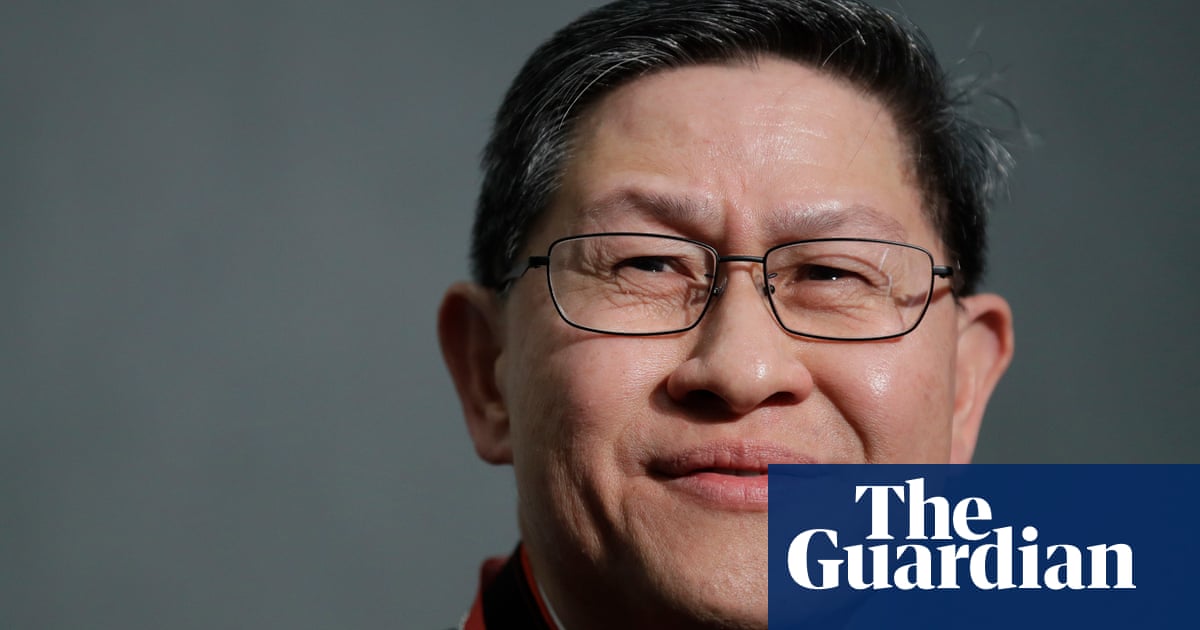Filipino Cardinal Luis Antonio Tagle laughed when asked in 2015 if he had ever considered that he might one day be pope. “I make a public confession here. I cannot even manage my life. How can I imagine a worldwide community?”
Despite his self-deprecating response, the Filipino cardinal is among those tipped as a potential successor to Pope Francis. If appointed, he would be the first Asian pope in modern times.
Tagle, who goes by the nickname “Chito,” has been described as the Asian Francis, due to his progressive outlook and humble lifestyle. He has previously criticised the “harsh” stance toward single mothers, and people who are gay or divorced. As bishop of Imus, a city near Manila, he rode jeepneys, cheap public minivans and invited the destitute to eat with him.
Known as approachable and unpretentious, Tagle is also a fan of singing and dancing. Videos of him on Tiktok have been shared widely, winning him the approval of many in thePhilippines, where karaoke is practically a national sport, and beyond.
“When he speaks and gives lectures he’s not the usual, formal priest. He sings. He’s a Filipino. He is a karaoke priest,” said Michael Xiao Chua, a historian at De La Salle University. Tagle has an “off the cuff” style, and is like “a rock star” after mass, he added, saying he had seen volunteers circle around Tagle to manage queues of people wanting to greet him.
Tagle, 67, was born in Imus, near the capital region Metro Manila, to Catholic parents who worked in a bank. “He’s [from] a very simple family – not poor but not rich,” said Mary John Mananzan, a missionary benedictine sister who has known Tagle for decades. Tagle reportedly wanted to become a doctor, but entered the church after a priest tricked him into applying to a seminary in Quezon City. He obtained a doctorate at the Catholic University of America and became Bishop of Imus and, later, archbishop of Manila. He was made a cardinal by Pope Benedict XVI in 2012.
But his rise to the top echelons of the Catholic church has not been without controversy. Tagle served as president of Caritas Internationalis from 2015 until 2022 when the leadership team was removed due to concerns over mismanagement. At the time Tagle – who was not involved in day-to-day operations – said the decision did not relate to allegations of sexual abuse or mismanagement of money.
This March a survivors group, the Survivors Network of those Abused by Priests, called for an investigation into Tagle, and five other cardinals, in relation to the handling of alleged child abuses cases by Caritas Internationalis in New Zealand and the Central African Republic. Tagle has not commented on these calls.Campaigners have said Tagle has not worked hard enough to tackle sexual abuse in the church. Anne Barrett Doyle, co-director of BishopAccountability.org, said last week the church in the Philippines was in the “dark ages” on the issue, and that guidelines on dealing with allegations have not been published on the website of the Manila archdiocese or the Bishops’ Conference of the Philippines. Questioning his suitability, she said: “If Cardinal Tagle cannot even get his brother bishops from his home country to publish guidelines. What on earth can we expect for him to achieve as pope of a global church?”
However the Catholic Bishops Conference of the Philippines defended Tagle, stating that during his tenure as bishop of Imus and archbishop of Manila he had “actively participated in the development and implementation” of guidelines on handling sexual abuse cases but that he “no longer holds direct authority over any diocese in the Philippines”. Tagle, it said, “has consistently advocated for a humble and responsive Church that listens to the cries of the wounded and acts decisively to protect the vulnerable.”
In the Philippines, Tagle has also been accused of being slow to condemn former Philippine president Rodrigo Duterte’sso-called war on drugs. As many as 30,000 people were killed in the crackdowns, which began after Duterte took office in June 2016. Many victims were young men, who were shot dead in the streets.
In 2017, Tagle wrote a pastoral letter criticising the killings, saying: “We cannot govern the nation by killing. We cannot foster a humane and decent Filipino culture by killing.” However, some say he should have spoken out more clearly earlier.
Duterte’s war on drugs marked a difficult chapter for the Catholic church in the Philippines. Some priests risked retaliation by criticising the killings, and despite international outrage over the killings, Duterte remained highly popular among the Catholic-majority population.
Mananzan said Tagle was not “the condemning type”. “He had very strong statements about the extrajudicial killings… But he never [talked] about Duterte as a person.”
Tagle opposed thepassing of the Reproductive Health Billin the Philippines, which offered free contraceptives and information on family planning. He also opposes abortion rights.
Were Tagle to be appointed pope, it would be met by huge celebrations in the Philippines, where 80% of the population is Catholic.
Despite a 500-year history with the Catholic church, the Philippines has always felt that it exists on the outskirts, said historian Xiao Chua.
Pope Francis was the first non-European pope in centuries, he said, of a trend that should continue.
“We need [another] pope from the peripheries.”
